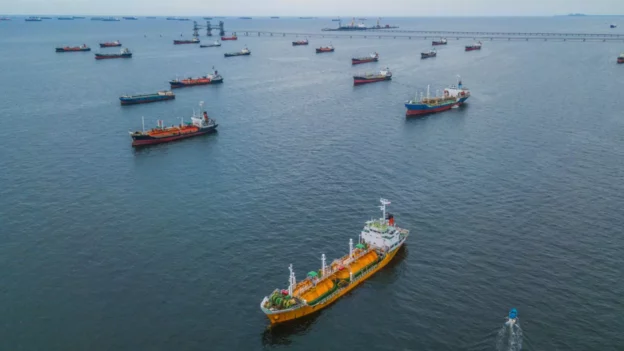In the month of April, Asian oil imports fall and register a critical decline compared to March, according to official data by LSEG Oil Research. This information reflects a moderation in the acquisition of crude oil in Asia during the current year.
A significant decline for the oil market
During the month under review, Asian crude oil imports , a key indicator of implicit import demand for this material, reached a daily average of 26.89 million barrels per day (bpd) . In comparison, the import volume in March was 27.33 million bpd and in February it was 26.68 million bpd, statistics from LSEG Oil Research reveal.
From January and April, average crude oil imports in Asia stood at 27.03 million bpd , which represents a marginal increase of 300,000 bpd, compared to the same period of the previous year, the reports detail.
Although imports are not a direct reflection of demand , the moderate expansion in imports in Asia, the largest importing region, may raise concerns about future demand for crude oil. The decline in imports can also be interpreted as an indication that buyers “they did not rush to purchase crude oil when prices exceeded $80 per barrel” during the months of February and March, a favorable period in which purchases were made for April shipments.
Reports detail that Asian oil imports fall
However, organizations such as OPEC, which sees Asia as its most dynamic market, anticipate a recovery in global oil demand as the summer season approaches and mobility for travel and vacations increases. Summer oil demand is expected to be robust, with transportation fuel consumption increasing in several regions, driven by increased vacation travel, according to the latest Monthly Oil Market Report (MOMR). of April OPEC.
The organization maintains an optimistic vision for oil demand in the summer months and estimates a growth in global oil demand of 2.2 million bpd by 2024, a figure that remains stable compared to March forecasts. Additionally, OPEC projects continued “solid growth” of 1.8 million bpd in 2025 compared to 2024.
Follow us on social networks and don’t miss any of our publications!
Inspenet.com YouTube LinkedIn Facebook Instagram X
Source: oilprice.com
Photo: Shutterstock

